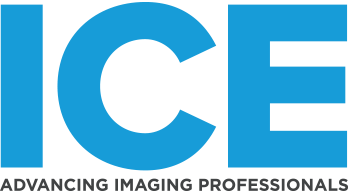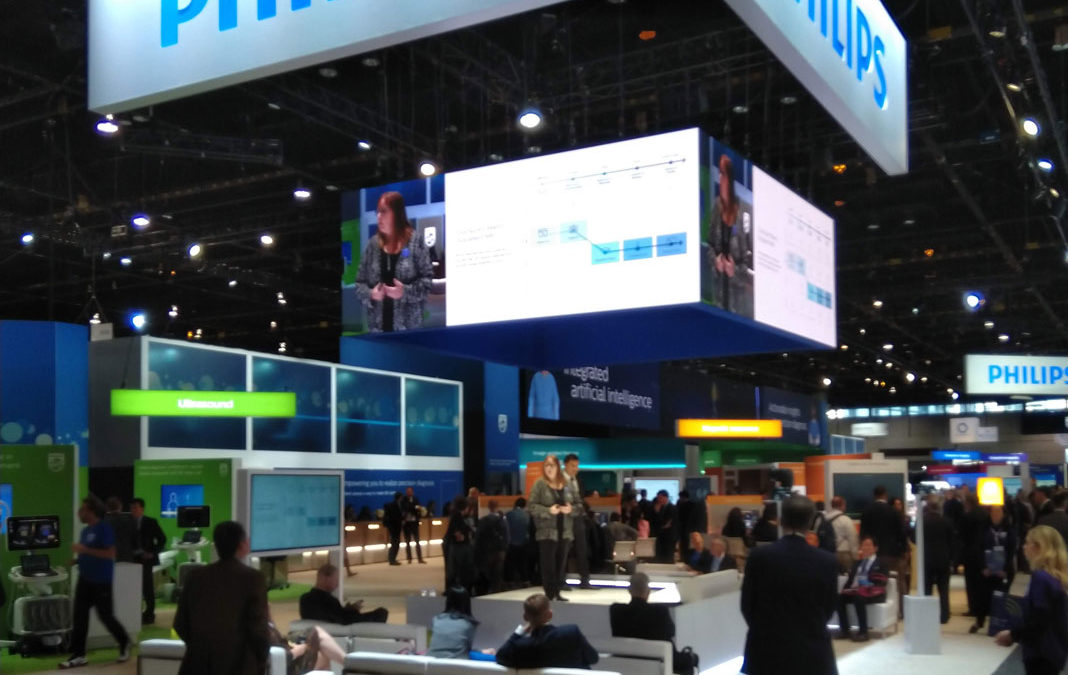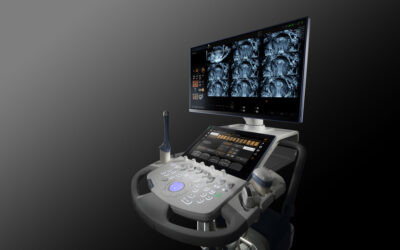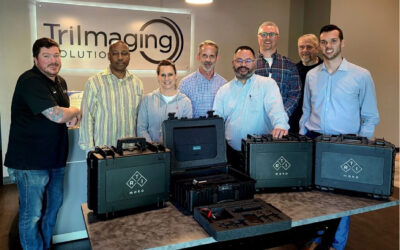By John Wallace
The RSNA Scientific Assembly and Annual Meeting is a grand event each and every year. The 105th meeting held December 1-6, 2019 at the McCormick Place in Chicago was no different.

At RSNA, Royal Philips is harnessing the power of AI to create insights from the complete range of patient data, including pathology and genomics. Combining simplified workflows, strong clinical capabilities and AI, Philips’ patient-centered approach empowers health care providers to provide a precision diagnosis, leading to targeted therapies with predictable outcomes.
“Philips has significantly extended its enterprise imaging portfolio through strategic investments in R&D and complementary acquisitions, all guided by the goal of enabling precision diagnosis,” said Rob Cascella, chief business leader for precision diagnosis at Royal Philips. “From capabilities in data integration and AI to completely renewed platforms across MRI and CT, our portfolio and our ability to shape solutions to meet healthcare providers’ needs is stronger than ever.”
Recent research commissioned by Philips highlights the need for radiology staff empowerment and workflow-focused innovation. With pressure on imaging departments mounting amid rising patient volumes and a global shortage of qualified staff, improvements in workflow and efficiency, supported by data integration and AI, can improve the experience of staff and patients and, more broadly, enhance clinical outcomes while reducing costs. From reducing MR exam times by up to 50% to reducing the number of steps that a clinician needs to take for a 3D vascular ultrasound assessment from 10 to one, Philips is supporting improved workflow across its portfolio.
At RSNA, Philips launched its next-generation enterprise imaging informatics solution. The introduction follows several years of strategic investments in R&D, AI and complementary acquisitions, resulting in a suite of integrated products that deliver a comprehensive platform designed to connect clinical capabilities and optimize workflows around every step in the patient’s journey.
Philips is also launching IntelliSpace AI Workflow Suite, which enables health care providers to seamlessly integrate AI applications into the imaging workflow. Part of Philips’ new enterprise imaging informatics solution, the comprehensive AI Workflow Suite provides a full set of applications for integration and centralized workflow management of AI algorithms, delivering structured results wherever they’re needed across the health care enterprise.
Now available in North America, the Incisive CT integrates innovations in imaging, workflow, and lifecycle management, helping health care providers to improve the computed tomography (CT) experience for patients and staff, enabling smart clinical decision-making and increasing efficiency. With its industry-first “Tube for Life” guarantee, Philips will replace the Incisive’s X-ray tube at no additional cost throughout the entire life of the system, potentially lowering operating expenses by an estimated $420,000. The system also enables inter-operator consistency, increases uptime and decreases “time to results” by 19%.
Philips also announced the CT 6000 iCT and the CT 5000 Ingenuity. The innovative new platforms offer new capabilities including advanced workflow benefits, cybersecurity and safeguards – as well as software and hardware improvements that enhance performance and reliability. The company also highlighted the IQon Elite Spectral CT, the world’s first spectral detector-based CT system.
With improving MR speed and workflow a key area of attention for imaging providers, Philips recently marked the completion of its one millionth patient scan accelerated with Compressed SENSE, an advanced solution that reduces exam times up to 50%. Combining powerfully with Compressed SENSE, Philips’ latest workflow solutions integrate guided patient setup and scanning automation, along with AI-embedded technology including VitalEye, VitalScreen and SmartExam, helping to save time and staff stress by simplifying the number of workflow steps.
Its Ambition 1.5T MR platform is the industry’s first and only commercially available fully sealed magnet for more productive, helium-free operations. Since its launch last year, the breakthrough platform with its fully sealed BlueSeal magnet has received an enthusiastic reception from health care providers worldwide, reducing the chance of potentially lengthy and costly disruptions, and virtually eliminating dependency on a commodity with an unpredictable supply.
The new release of the MobileDiagnost wDR is a premium mobile digital radiography system that brings the superb image quality and high efficiency of Philips’ premium mounted systems to a mobile system. The MobileDiagnost wDR comes with the Philips Eleva user interface, a common platform across a range of Philips digital radiography systems that’s easy-to-learn and customizable to allow a smooth and efficient, patient-focused workflow. The system also includes a range of security and access management features, workflow enhancements, and Philips’ UNIQUE 2 image processing, which provides superb images of all anatomical areas.
On display for the first time at RSNA, the EPIQ Elite ultrasound system is a new premium ultrasound that combines the latest advances in transducer innovation and enhanced performance to improve clinical confidence and the patient experience. EPIQ Elite offers a range of diagnostic ultrasound solutions tailored to the needs of specific medical specialties, including Philips’ first solution for vascular assessment and diagnosis. The Philips Ultimate Ultrasound Solution for Vascular Assessment combines 3D and 4D imaging, a breakthrough simplified workflow and complimentary clinical tools to effectively assess and monitor vascular disease.
Philips also highlighted its IntelliSpace Precision Medicine oncology solutions portfolio, which drives diagnostics and therapy selection for clinical, operational and financial improvements through Oncology Pathways powered by Dana-Farber Cancer Institute, clinical trial matching and multi-disciplinary tumour board solutions. The company also showcased its integrated radiation oncology portfolio, including IntelliSpace Radiation Oncology, an intelligent patient management solution to manage complexity, improve efficiency and enable operational excellence in radiotherapy departments.
Philips’ Vereos Digital PET/CT, the world’s first and only fully digital, clinically proven PET/CT solution. It is supported by rigorous clinical evidence, including more than four years of investigational studies and over 100 published clinical studies.
Philips welcomes a new standard for the future of image-guided procedures with Azurion with FlexArm. During increasingly complex interventions, clinicians need to quickly and easily visualize critical anatomy and identify changes to the patient during the procedure. Azurion with FlexArm includes a set of innovations that makes it easier for the clinician to perform imaging across the whole patient in both 2D and 3D. As the clinician moves the system, the image beam automatically maintains alignment with the patient, allowing more consistent visualization and enabling them to keep their focus on the treatment. Launched in February 2017, Philips’ advanced Azurion platform for image-guided therapy has already been used to treat more than one million patients.








